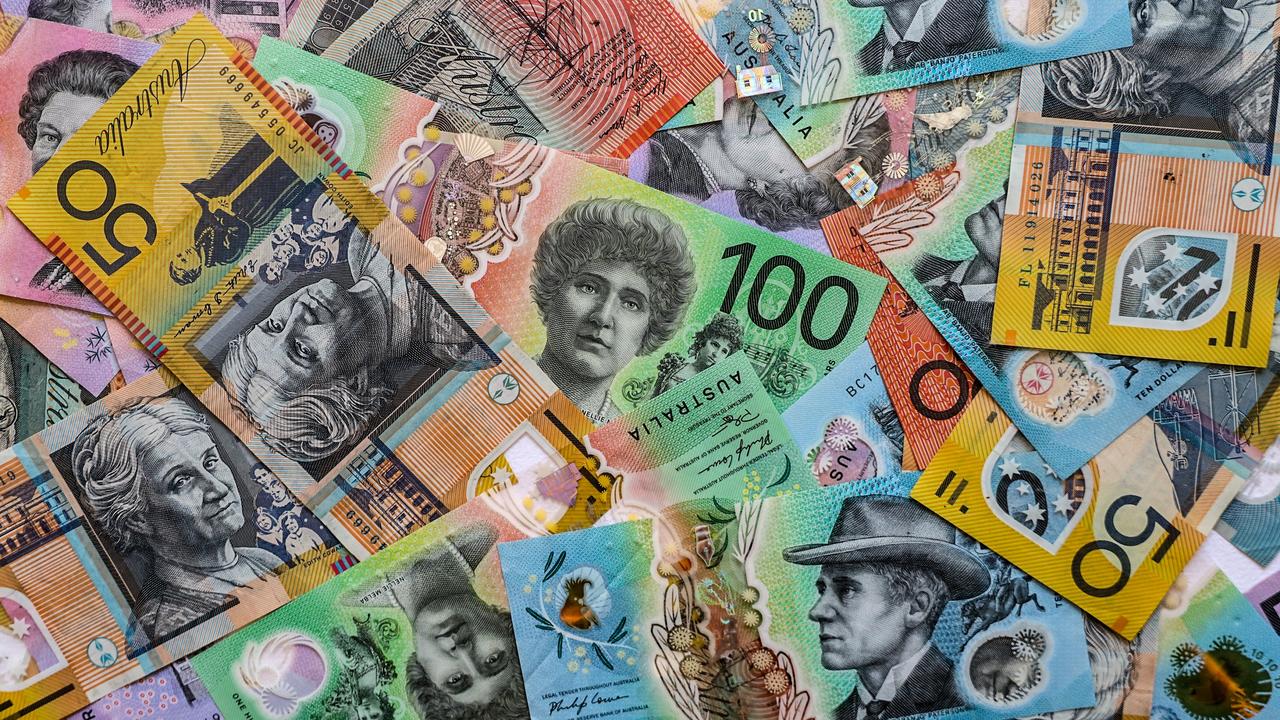December hike unlikely
THE prospect of a rate hike in December is diminishing, with wages data suggesting growth is still manageable.
December hike unlikely
THE prospect of the Reserve Bank ordering another interest rate rise in December is diminishing, as wages numbers published yesterday suggest growth is still manageable.
The futures market has now sold down the likelihood of the cash rate being raised next month from a 21 per cent chance to 16 per cent.
But the Reserve Bank is still almost universally expected to move the official cash rate up to 7per cent in February.
The September quarter wages report from the ABS showed that wages rose by 1 per cent in the past three months, which met the consensus of the market.
The annualised rate rose to 4.2 per cent, which is still within the Reserve Bank's comfort zone, which peaks at 4.5 per cent.
Economists believe the numbers have taken the pressure off the Reserve Bank to order its third interest rate rise this year when it meets next month.
There was reaction on the financial markets as December's rate-rise chances faded - 30-day cash futures fell by three basis points in cash and three-year bond futures also came off by the same number.
The likelihood of a December rate rise had been growing, especially after the bank raised its inflation forecasts for the next two years. It now predicts underlying inflation will rise to 3.25per cent - outside the management bracket - by the end of the current quarter.
The greatest increase in workers' pay packets was recorded in the red-hot industries of mining and construction.
However, economists said the increase in those areas would not put undue pressure on inflation because the two sectors made up just 7.5 per cent of the national wage bill.
ABN AMRO economist Felicity Emmett said the pick-up in wages was not alarming and said inflation would remain the RBA's number one concern.
"While we do not think that the RBA would be unsettled by the solid rise in wages, it is likely to remain nervous that a tight labour market could generate increased cost pressures at a time when underlying inflation has picked up and past rate hikes do not appear to have had much effect,'' Ms Emmett said.
Westpac chief economist Bill Evans said the Reserve Bank could be influenced in its December negotiations by the current market volatility.
"For us, the real issue over the next few weeks, which will determine the RBA's December decision, will come from developments in the global capital markets,'' Mr Evans said.
"The volatility that we have seen in currency markets, and the renewed fear that seems to be gripping these markets, will undoubtedly impact on the RBA's decision.''



